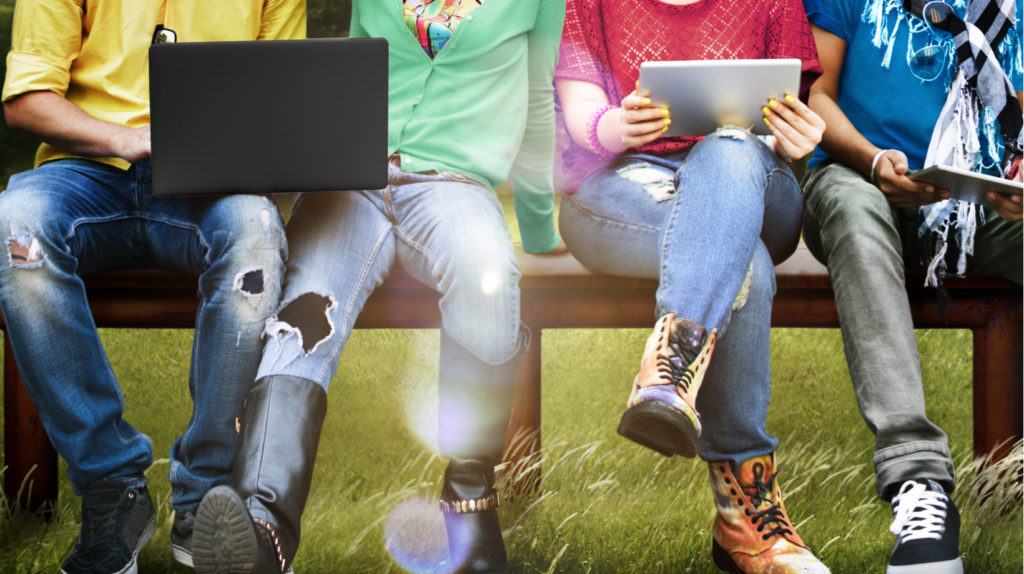How Learning Is Improved By Using Social Media In Education
Today, both social media and technology have become an indispensable part of our lives. Every individual who is above 13 years old will have their account on any of the popular social media networks such as Facebook, SnapChat, Instagram, etc. WhatsApp has raised the minimum age to 16 years old.
Students are using various online tools to cater to different requirements. It will not be wrong to say that social media and education goes hand in hand in the modern world.
However, the question that arises is: how is social online networking useful to students? Are there ways that social media in education can benefit learners and help to fill in the gaps in learning if used in a safe and appropriate way?
Here are some of the educational approaches and benefits of social media to improve the academic performance of students:
1. Communication And Collaboration
The biggest advantage of social media is better communication. A student can connect with anyone at any point in time via Kids Messenger or WhatsApp. They can use such platforms via their smartphone, tablet or computer, and learners can exchange questions, make phone calls or video calls. If a student is stuck with their homework, they can always communicate with their friends or tutors. They don’t need to wait and meet the teacher physically. Social media promote learning by offering support with sharing documents as well such as via Google Drive Box, Google Docs. Some teachers even connect with their class via Facebook live, as this American teacher does by reading bedtime stories to her students every evening.
2. Finding Concrete Information Online
Various websites and social media networks are providing plenty of information that can be helpful to students. Via social media news feeds, students can find informational and relevant websites they want to follow so as to be kept in the loop. Depending on their interests, students can find answers to their questions. Sites, such as Tumblr and Pinterest, can offer children inspirations for school projects or practical problem-solving.
The educational benefits of social networking sites are also those that help students prepare for important lessons and learn certain concepts with great efficacy. Social media websites will contain the latest data on various school subjects and thus, the students have the opportunity to survey and look into what is new. Social media is a Wikipedia for students these days. We are witnessing an era of social media learning.
3. Parental Involvement
Social media help the parents stay involved in the child’s learning. Via the school’s Twitter or Facebook feed parents can be updated on school-related activities, projects, and events that are happening. The school teachers can get in touch with the parents in case they want to share the child's progress via Skype or other secure online platforms the institution uses. A social network for parents can be created too via WhatsApp or Facebook Messenger, which can enable them to be informed about school matters, learning, and education.
These are all positive impacts social media have on parents' communication with the school so as to learn about, share and observe their children's' academic and personal progress at school. This again is a positive impact social media have on students' performance as their parents can offer better informed academic support at home.
4. Improved Literacy, Communication, And Reading Skills
It is usually observed that students are bored of reading and writing, however, the internet and social media provide plenty of online information which often students are more inclined to read, especially if these pieces of information include eye-catching animations. Online messages, comments, news, articles, and books provide an endless list of information to be read, and students are motivated to devote their time and put some extra efforts towards their learning.
Such online activities contribute to the child's general learning, and kids eventually develop stronger reading habits resulting in a drastic improvement in their writing abilities. Social media sites are in the most part interactive and this definitely keeps the student involved.
5. Distance Learning Opportunities
Another great advantage of social media in education is distance learning opportunities. There are many disadvantaged students who are not able to acquire formal education by attending regular classes in an educational institution. With the help of various online tools along with social media, modern educators are able to attract students through distance learning programs. Soon, this will be an inseparable part of our modern education system. Today, hosting live lectures via Skype or webinars via WebinarJam is the way forward to allowing students who live in remote areas of the world to access education.
Therefore, it can be claimed that social media platforms, enabling free voice and video calls, the sharing of documents, links and any other type of information can be highly effective in improving the academic performance and students learning.
At the same time, the parents and teachers must note that high security must be maintained if a minor is making use of any social media websites. There are great tips for keeping kids safe online which are for sure useful to all parents nowadays.

